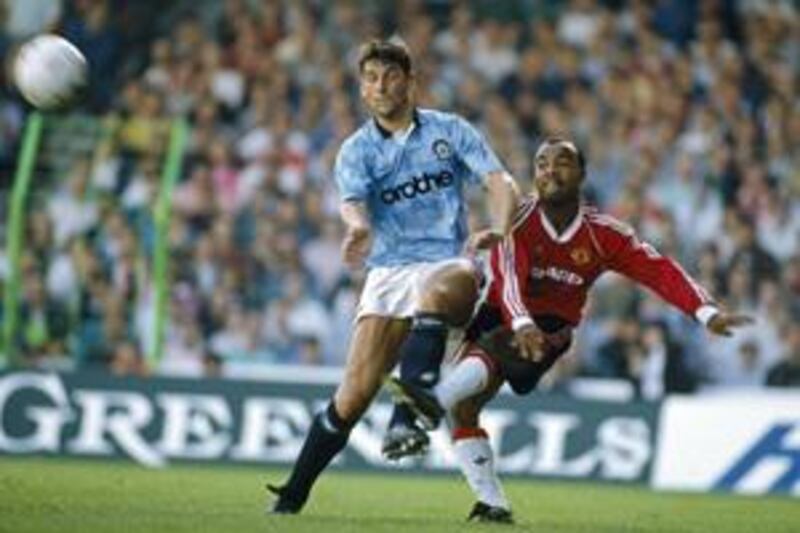Sir Alex Ferguson's achievements as manager of Manchester United have been so great over such a sustained period, it's hard to believe his position at Old Trafford has ever been challenged. But, rewind to September 23, 1989, and the Scotsman's short-term prospects appeared bleak. Ferguson had taken the United job in November 1986 fresh from a period of trophy-laden glory as boss of Aberdeen and he was expected to break the domestic dominance of Liverpool in England, just as he had destroyed the duopoly of Celtic and Rangers north of the border.
After United finished 11th in that first season under Ferguson's charge, the Red Devils grabbed second spot in 1988, raising hopes of a more concerted push for a first title in more than 20 years, only to finish in mid-table once again in 1989. A summer of spending followed, with Ferguson acquiring the service of Mike Phelan, Neil Webb and Paul Ince to play in midfield, Gary Pallister as a central defender and, latterly, Danny Wallace, a promising winger, for a total of £6.75 million (Dh40.7m) in transfer fees - small fry by the standards of today's big spenders, but a small fortune in the cash-strapped 1980s.
With this quintet joining a squad that also included Bryan Robson, Steve Bruce and Mark Hughes, the Reds scored a stunning 4-1 victory over Arsenal on the opening day of the season. The victory proved another false start, however, as United picked up only four points from their next five games prior to the Manchester derby and question marks hung over Ferguson's managerial capabilities. Manchester City, meanwhile, had secured promotion back to the First Division the previous May, but won only once in their opening six games in the top flight.
In truth, the Blues were, at this time, both literally and metaphorically United's poor relations. Peter Swales, the club's ambitious but flawed chairman, had embarked on a period of overspending in the mid-Seventies which left the Blues financially burdened and, eventually, humbled by relegation in 1983. With meagre resources, City fought their way back to the top flight in 1985, were relegated again two years later before winning promotion once more in 1989, guided back to the big-time by Mel Machin, a softly spoken former coach of Norwich City.
A happy by product of these debt-ridden times was that City were forced to look inwards for new recruits to strengthen the side and the team that took the field against United featured five products of the youth squad, including Paul Lake, arguably one of the greatest players ever to play for the club. The opening minutes were typical of many Manchester derbies - frantic, frenetic and largely forgettable. In truth, the main action was occurring in the stadium's North Stand, as rival fans clashed violently and when their battles spilt onto the pitch, referee Neil Midgeley was forced to stop the game, ordering the players back to the dressing rooms while the police restored order.
The game resumed after a nine minute interval and it was City who responded better, with first David Oldfield and then Trevor Morley scoring scrambled goals for the home side before a sublime header by Ian Bishop put the Blues three goals ahead after only 36 minutes. Blues fans in the 43,246 crowd could scarcely believe their side's good fortune. United stalwart Mark Hughes scored a screaming volley five minutes after half-time, suggesting the Reds were capable of a famous comeback, until Lake carved the away side's defence open in the 58th minute, and squared the ball to Oldfield, who scored City's fourth with a simple tap-in.
Then David White crossed from the right for Andy Hinchcliffe to put City further ahead in the 62nd minute with a powerful header. Both White and Hinchcliffe were, like Lake, graduates of City's impressive youth development scheme. With United facing their biggest ever derby defeat, few of their supporters stayed to watch the final half hour. City fans meanwhile, buoyed by their side's first win against their neighbours in five years, quickly dubbed the game the "Maine Road massacre".
Ferguson later confided this defeat was "the most embarrassing of my management career," but remained unbeaten in the fixture until November 2002, when Kevin Keegan's City side scored a 3-1 win in the final derby at Maine Road. Machin fared less well and was dismissed by City in November 1989 with the club bottom of the league. nmarch@thenational.ae






